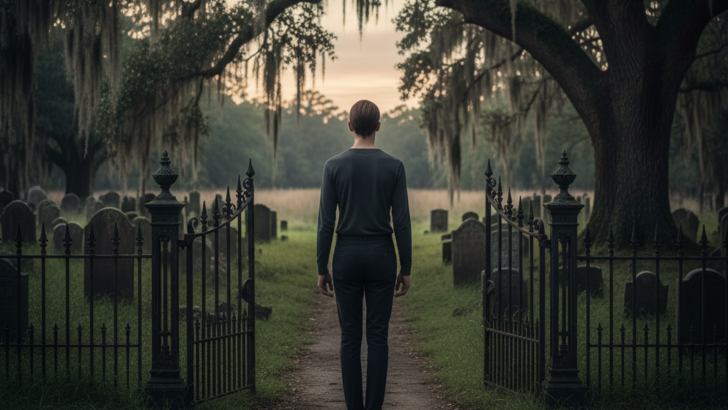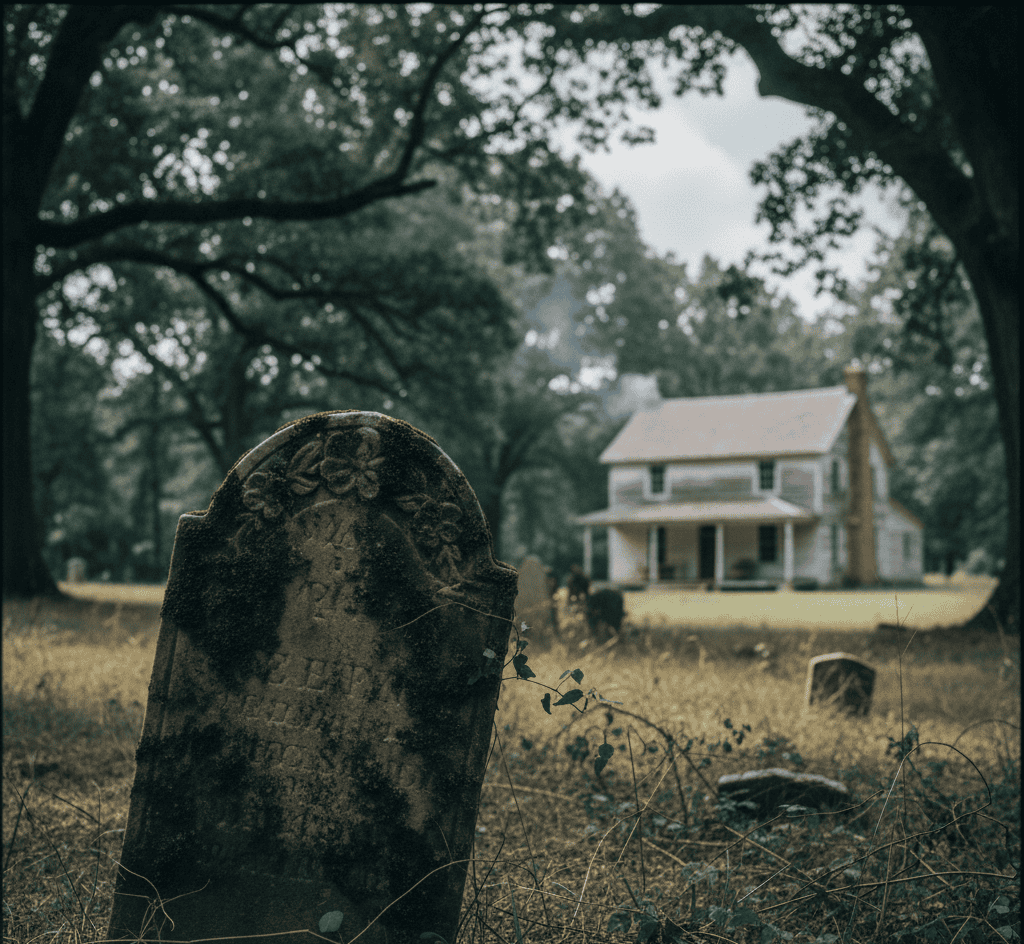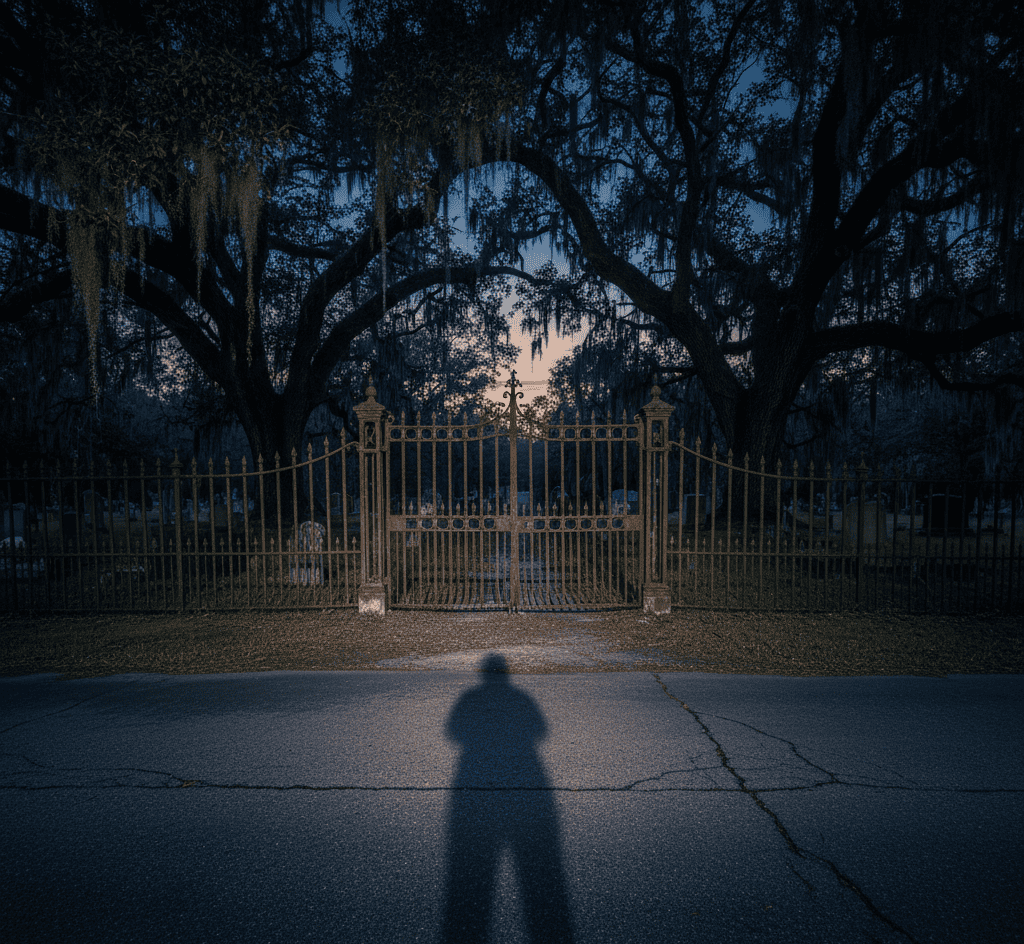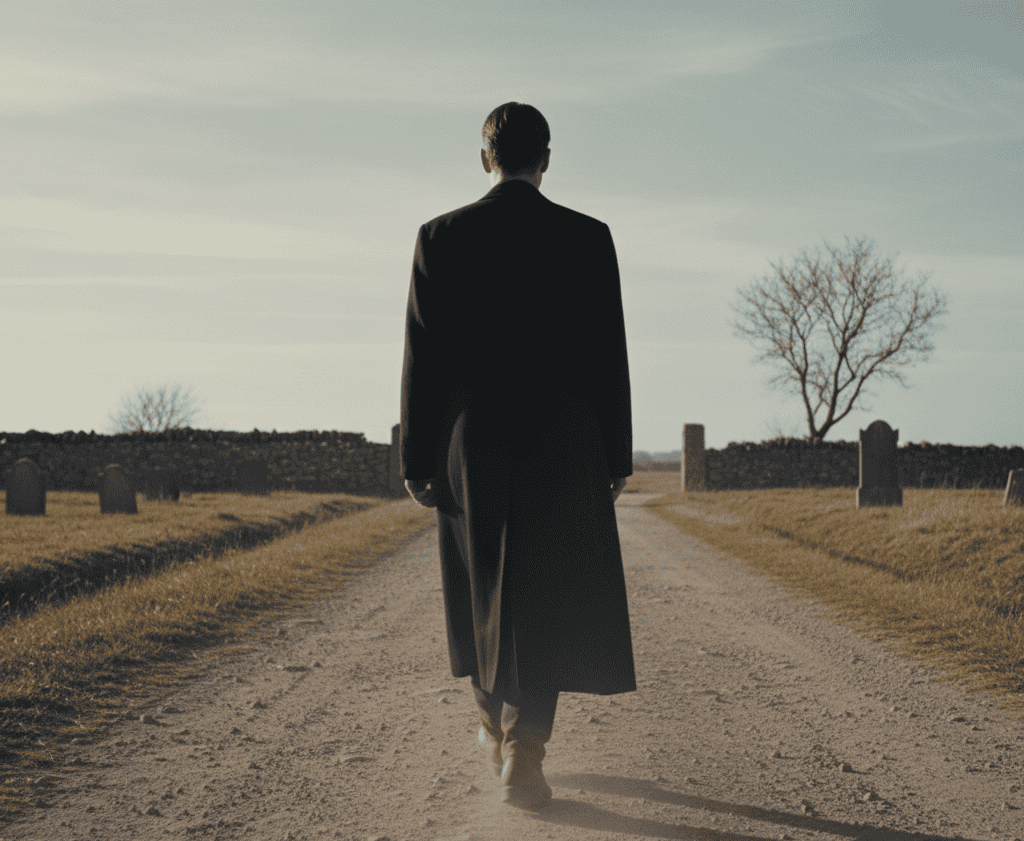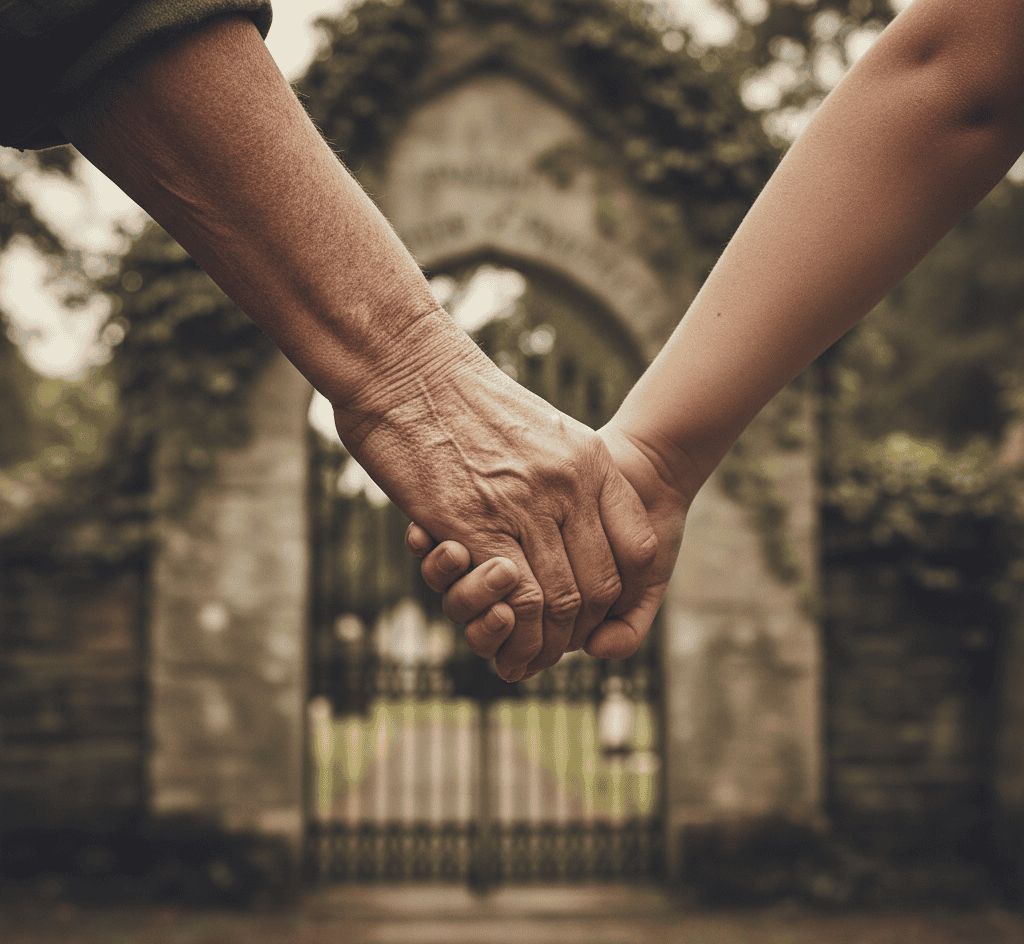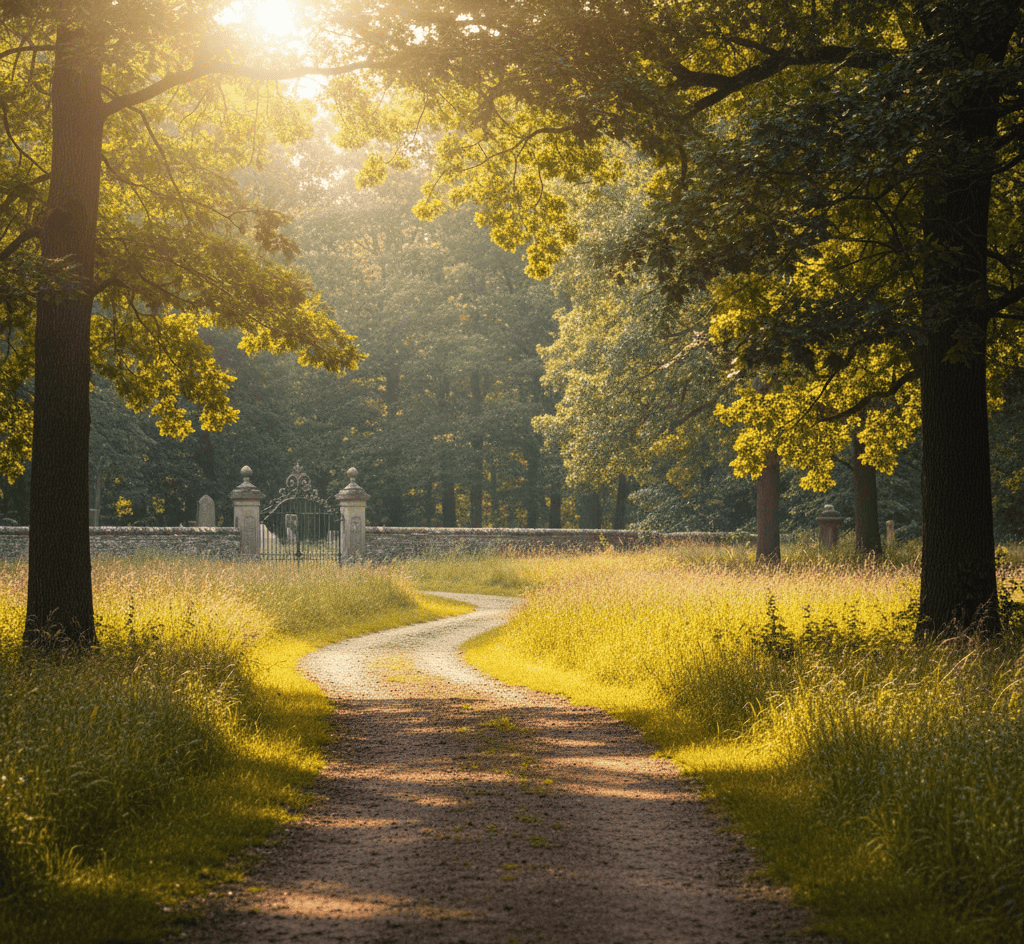There are few phrases in Southern folklore as quietly chilling as “Don’t look back when leaving a graveyard.”
For generations, families across the American South have passed down this warning, often whispered to children during funerals or grave visits.
It might sound like a simple superstition or a harmless old wives’ tale, but to many Southerners, it carries deep meaning.
Behind those words lies a world of belief shaped by respect for the dead, fear of spirits, and the unbreakable bond between the living and those who have passed on.
The South has always been a land of stories, where faith and folklore walk side by side, and this one in particular reflects how the region blends religion, memory, and mystery into its daily life.
The Roots of the Warning
The origins of the warning go back to early settlers in the South, many of whom came from places where superstition was part of survival.
In older European traditions, looking back after leaving a graveyard was seen as an invitation for spirits to follow.
When settlers brought those beliefs to the new world, they mixed with Native American and African spiritual traditions that already held strong ideas about the spirit world.
Over time, “Don’t look back” became more than just a phrase. It turned into a rule of respect and protection.
In rural communities, people believed that spirits could cling to the living, especially those who showed hesitation or grief.
Turning around, even just once, meant you might be inviting something from the other side to come home with you.
To understand why this superstition endured, it helps to imagine how life once was in the South. Death was part of the landscape.
Families buried loved ones on their land, sometimes within sight of their homes. Graves were visited regularly, not only for mourning but to maintain the connection with ancestors.
With life and death existing so close together, people needed ways to mark boundaries.
The simple act of walking away without looking back symbolized acceptance. It was a way to let the dead rest and to show the living that it was time to move forward.
Spirits and Southern Spirituality
The South is a deeply spiritual region, and much of its folklore draws from the idea that the veil between worlds is thin.
Christian beliefs often mix with older, earth-based ones, creating a complex view of death and the afterlife. In this worldview, spirits are not evil by nature, but they are restless.
Some want comfort, others want recognition, and a few may want revenge. Looking back after leaving a cemetery was thought to acknowledge them, to open yourself to their gaze.
It showed you were not ready to say goodbye, which might tempt them to follow you home.
Old stories tell of people who ignored the rule and suffered strange fates. They would hear whispers at night, see shadows in corners, or dream of cold hands reaching out from the soil.
In other versions, nothing dramatic happened at all. Instead, the person would simply feel heavy for weeks, as though grief had settled into their bones.
Folklorists suggest that these tales served as emotional guidance. By not looking back, mourners symbolically left their sorrow behind.
It was both spiritual advice and psychological wisdom disguised as superstition.
The Power of Symbolic Movement
Many Southern traditions are rooted in ritualized movement. From how people walk around graves to the direction they face when praying, physical gestures carry spiritual meaning.
The act of walking away from a graveyard without turning back is one such gesture. It tells the universe that your role in this part of the story is complete.
You came to pay respects, you offered love and remembrance, and now you are returning to the world of the living. To turn around would be to blur that sacred line.
In some families, parents still remind their children not to look back after funerals. The lesson is not only about spirits but about emotional resilience.
Life requires movement. Grief has its place, but it must not trap you. The body’s motion – walking forward – mirrors the inner act of letting go.
Even those who no longer believe in ghosts or curses often find comfort in the ritual. It becomes a way of closing a chapter, of giving structure to the pain of loss.
Regional Variations and Deeper Meanings
Though this warning is strongest in the South, similar beliefs exist around the world. In parts of Appalachia, people say that if you look back at a grave, you invite death to visit you next.
In some African traditions, the living must never show fear or curiosity when leaving burial grounds, as it gives spirits power.
Native American beliefs, too, often emphasize respect and direction when walking away from sacred sites.
Each variation has its own meaning, but the core idea remains the same: the energy of death must be honored and contained.
Southern folklore, however, gives this warning a particularly emotional tone. Here, death is not something to be feared outright—it is part of life’s rhythm.
Funerals are both solemn and social, blending mourning with celebration. Yet even in that openness, there is caution.
The old sayings act as quiet protectors, reminders that not everything can be explained by reason. “Don’t look back” is less about fear of ghosts and more about reverence for mystery.
It tells people that some boundaries should not be crossed, not because they are dangerous, but because they are sacred.
Why the Saying Still Endures
Today, many people who hear the warning think of it as an old superstition, something quaint that belongs to another time.
Yet the saying continues to appear in songs, books, and local storytelling. It resonates because it speaks to something human and timeless.
Everyone has moments in life when they must walk away from something painful and resist the urge to look back.
Whether it is the loss of a loved one, the end of a relationship, or the close of a chapter, the act of turning away carries meaning.
The graveyard becomes a symbol for all the places we must leave behind.
Folklore has always been a mirror for our emotions. The stories we tell about spirits and omens are really about our need to make sense of love and loss.
In this way, the Southern warning about not looking back is both cultural and universal. It may have started as a fear of the supernatural, but it endures as a gentle guide for the living.
To leave a graveyard without glancing back is to say, “I remember you, but I must continue.”
It is a lesson in acceptance and faith, delivered through generations of whispers and warnings.
Looking Forward with Respect
In the end, the Southern saying “Don’t look back when leaving a graveyard” carries more heart than fear. It reminds us that letting go does not mean forgetting.
It teaches respect for the dead, for life’s fragile balance, and for the mysteries that lie beyond our understanding.
While modern life often pushes people to dismiss old superstitions, these traditions still hold quiet wisdom.
They speak to the deep emotional intelligence of those who came before us, who used stories to express what could not easily be said.
The next time you find yourself in a cemetery, surrounded by the silence of those who came before, remember this simple truth.
Whether you believe in spirits or not, walking forward without looking back can be a small act of strength.
It honors both the past and the future. The old Southern warning, after all, is not just about what lies behind you.
It is a reminder that peace – both for the living and the dead – exists only when we learn to keep moving forward.

自出生以来,我一直感觉到自己与神灵有着紧密的联系。作为一名作家和导师,我的使命是帮助他人在最黑暗的时刻找到爱、幸福和内心的力量。

